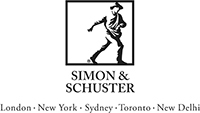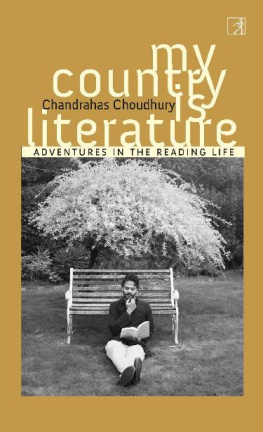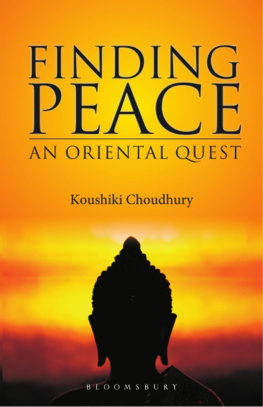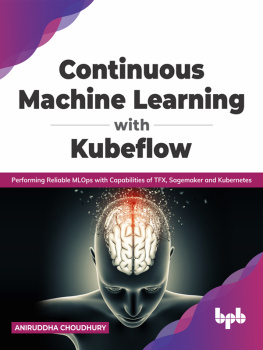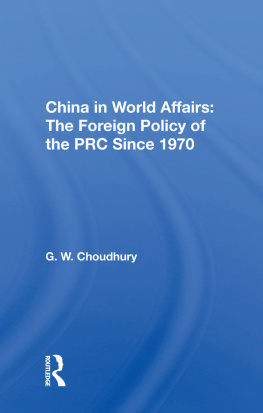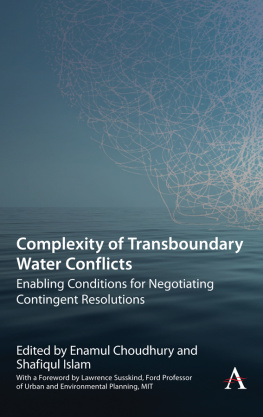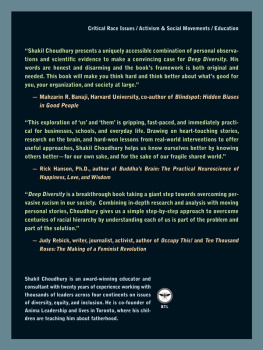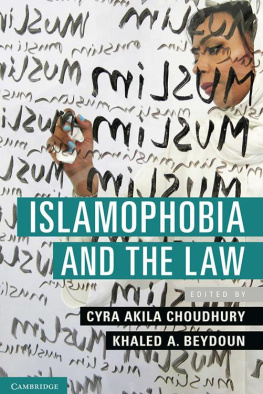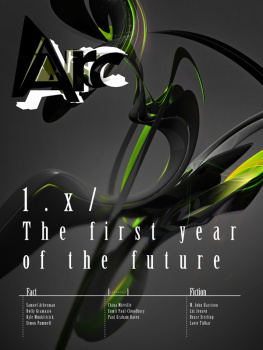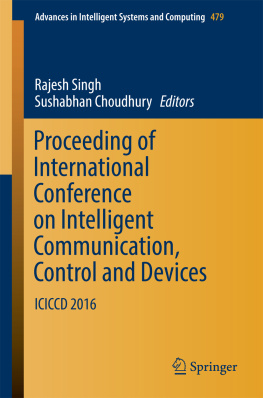My Country Is Literature
Chandrahas Choudhury
For Suni and Marni: you are my world
For my late father Rahas Bihari Choudhury (1951-2002): here is a book for all the books you bought me
For my teachers at Hindu College, Delhi and Trinity College, Cambridge, who showed me how to live in literature.
With particular gratitude to those gone too soon: the late Dr Lalita Subbu and Sunil Dua
To three bookshops that were an essential part of my literary education: Galloway & Porter, Cambridge;
Strand Book Stall, Mumbai; and the pavement booksellers of Flora Fountain, Mumbai.
INTRODUCTION
The Books of My Twenties, or, How I Became A Literary Critic
S o much that grows to fruition in life begins with a stroke of luck, a door that opens at exactly the right moment. In the summer of 2002, I was a literature student at Cambridge, just finished with my undergraduate degree and with only a hazy idea of my immediate future. Partly, this was because my exam result was not good enoughsomething that would be hard to explain to my fatherto ensure scholarship funds for another year in Cambridges very competitive environment. And partly it was because my father himselffor whom my scholarship to Cambridge two years previously had been, by a process of parental appropriation both disarming and disturbing, the greatest achievement of his lifelay battling for his life in a hospital bed back home in Delhi. The desperate facts of his situation were not completely clear to me, for my family had decided, considerately, that full exposure to the truth would disrupt my focus on my finals. But now I knew he was much more badly off than I had suspected. One morning, as I prepared to fly home, I made the long walk to the Cambridge Student Union to buy a new phone card with which to call Delhi. It was a beautiful summers day, but I did not have the eyes for it. I was worried about the futuremy fathers, and with the intense self-involvement and copious self-pity of youth, my own. I was going home. Would I ever return? I wasnt sure I was prepared for adult life in India.
As I stood in the shop waiting to be served, I espied on its noticeboard, amidst the vivid fliers for lectures, seminars and plays, a white A4 sheet of plain text:
BOOK REVIEWERS WANTED
Paid Opportunity
If interested, please email:
Someone out there wanted book reviews ?
These words sparked in me a rush of hopeeven a sense that there was someone above watching out for me, dangling a straw for me to clutch at. Walking home, the email address copied out on the back of a bookshop receipt, I began to feel that, even if I were to leave my precious, newly forged life in England behind forever, I would still on the flight home have in my head a vague map for my future and a road, however tenuous, to a livelihood.
For if there was one thing that I felt capable of doing and that actually chimed with my ambitions, it was writing book reviews. I had begun taking the genre, so often synonymous with mediocrity and hackwork, low pay and backscratching, seriously only after arriving in England. There had been nothing about my teenage years in India to attract me to it. But at Cambridge, even as I spent my work hours decoding the prosody of Shakespeares verse, wrestling with the somewhat alarming implications of the Dionysian instinct in Greek tragedy, and finding intellectually credible rather than reflexively dismissive rebuttals of Roland Barthess idea of the death of the author (which, wanting to be a writer myself, I could not in any form or fashion endorse), I found myself more drawn to another literary world.
This was the parallel system of vivid, trenchant, 12 or 15-paragraph book reviews published in the British broadsheets, in stand-alone supplements dedicated completely to literature and thereby proclaiming its independence fromeven its precedence overother sectors of life like Food, Money and Travel.
Literary journalism seemed to me the most inviting room in the house of literature and literary study. It was a space where depth and breadth each had their place. My professors, while significant names in their field, were by and large specialistsindeed, happy to be thought of as such. No matter what their private reading tastes, professionally they had traded continents for islands. Or perhaps the very purpose of their existence was to investigate islandsthe literary revolution of the Romantic poets, every detail of the novels of Trollope and their links to every detail to his life, gender-bending in Shakespeare, the tropes of postcolonial literaturein such depth that they became continents. But some of the names that popped up regularly in the pages of The Guardian literary review, novelists, poets and playwrights, career academics and journalists, wrote with great poise and panache about a novel one month, biography the next, history the next. Much in the same way as I worked, with an entry-level literary receptor and decidedly banal results, on tragedy one term, the modern novel the next, and American literature the third.
My new dreams and desiresthe first sense of vocation that I had felt as an adultwere also closely connected with the World Wide Web, then still a new and wonderful and scarce resource in human life and not the fundamental human right and all-enveloping force, ubiquitous as the air, that it is today. The previous winter, my second in England, I had been able to afford a second-hand laptop (refurbished, in the parlance of the time), which allowed me to write my student essays from the comfort of my own digs instead of the student computer room.
Not only did this let me wear a holey T-shirt and pick my nose while I worked, it also, crucially, allowed me unlimited reading time at all hours of the day. (Then, as now, it was more glamorous to read online than off the grid, giving the brain little hits of news, or just hyperlink drifting.) During the Christmas vacation, when most students went home and Cambridge was cold, silent, and desolate, I stayed up all night surfing the horizonless internet, drinking cups of coppery tea made with circular and tagless Sainsburys Kenya teabags, boiled up Indian style with milk and water in a saucepan. I found I loved to browse the archives of the book review pages of The New York Times by typing in the names of writers who had floated into my consciousnessTolstoy, Henry Green, Constantine Cavafy, Gabriela Mistraland reading everything that had been published about them over the decades. And then everything I could find by the writers who had written something interesting about one of them. Everything was something in itself and a link to something else.
This was not the mandated, dutiful reading of an academic syllabus; in this space, every writer had to earn the right to your approbation. Day by day, the literary web in my mind, a mirror of the web of which I was such an enthusiastic votary, expanded with names and notions, ideas and intellectual positionsall the nuances of expressing pleasure or disappointment with the construction of a verbal artifact, all the crisscrossing lines of connection across the centuries, across genres, and between one writer and another. The maths student Alexander Ritter, a sureshot candidate for a Cambridge First, alerted me to Arts and Letters Daily
Now this sort of reading, to me, was progress. I knew I wanted eventually to be a writer of novels. But the path to this goal lay obscured by my callowness, by the total indifference of time and fate to my desires. But while time and fate got their tardy act together, it seemed incredible that one could contemplate making a living by being a jobbing writer, applying not so much a system as a self, a sensibility, a cup of tea and a biscuit, to the reading of books.
